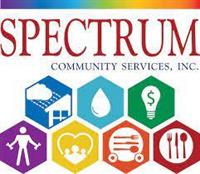Addressing the Growing Crisis of Senior Food Insecurity: A call to action
Make a gift before December 31 and have your donation TRIPLED!
Donate Here
As the number of seniors increases each year, the challenges they face become more serious, including food insecurity. Meals on Wheels America reports that around 12 million adults over 60 years old are either on the edge of or actually experiencing hunger. This number comprises over 15% of the 78.9 million US seniors. With this population expected to reach 91 million by 2030, the number of older adults affected by food insecurity is likely to increase as well.
Food insecurity can result from various factors, including isolation, having a fixed income, and low mobility. Considering that 24% of older adults live alone in Alameda County, if they don’t have family or other support nearby, it may be difficult to have access to regular meals.
Causes of food insecurity
- Isolation. Older adults often have limited or no means of transportation or far distances to food access. Without engaged family members or a strong community network, seniors experience isolation and may be uncertain about how to reach out to get help.
- Fixed income. Entering into the retirement phase usually means living on a fixed income. With limited resources, rising costs can greatly affect the ability to pay for fresh and nutritious food and contribute to food insecurity.
- Low mobility. Aging often brings a slower pace and can create challenges when making trips to the grocery store. Hip and knee issues make it especially difficult to get around, even with a walker or wheelchair, and cause issues when standing to prepare and cook meals.
Results of fewer nutritional meals
- Aggravated chronic conditions. Diabetes and hypertension are medical conditions that many seniors face. Without regular, healthy meals, these conditions are more likely to occur and can worsen.
- Decreased immunity. Without proper nutrition, including zinc and vitamin C, older adults can be more vulnerable to illnesses due to a weakened immune system. A common cold or flu can land a senior in the hospital for days if they are already frail.
- Lower energy levels. When nutrition is lacking, energy levels drop. Depleted energy levels can lead to less physical activity, including cooking.
With a large number of older adults living alone, the social aspect of our programs is just as important as the nutritional element. Both of our senior meal programs provide not only delicious food, but also opportunities to connect with others—whether volunteers through MOW or fellow seniors at one of our nine facilities where meals are served. Meals on Wheels America research found that 53% of seniors who received friendly calls with meals experienced decreased social disconnectedness. And, increasing human connections enhances quality of life.
Helping our senior clients to enhance their quality of life is our mission. We are grateful to share moments with our clients that help them stay healthy and socially connected. If you know a senior who is experiencing food insecurity, please reach out to us either on our MOW web page or Senior Meals web page. As a community, we thrive when we support each other, especially during the holidays. Everyone at Spectrum is wishing you a healthy and happy holiday season!


